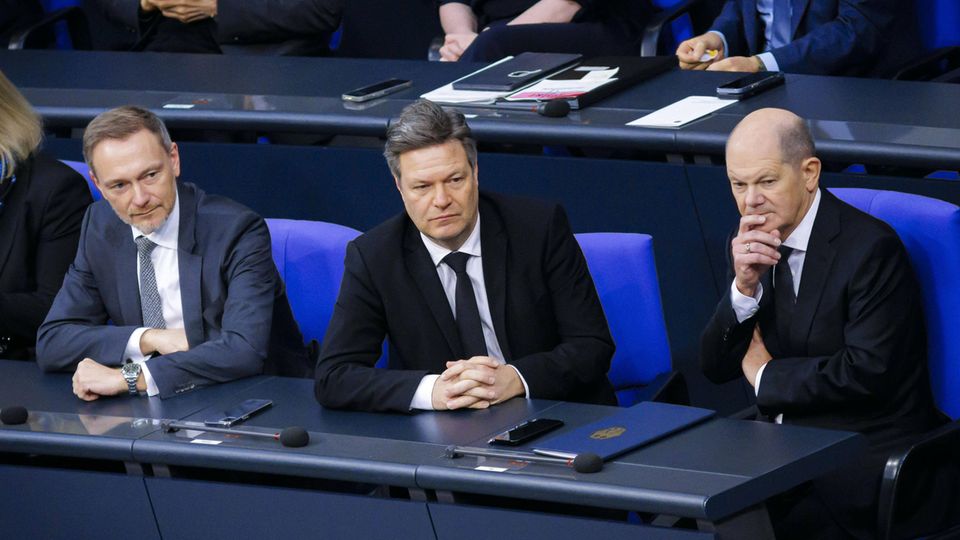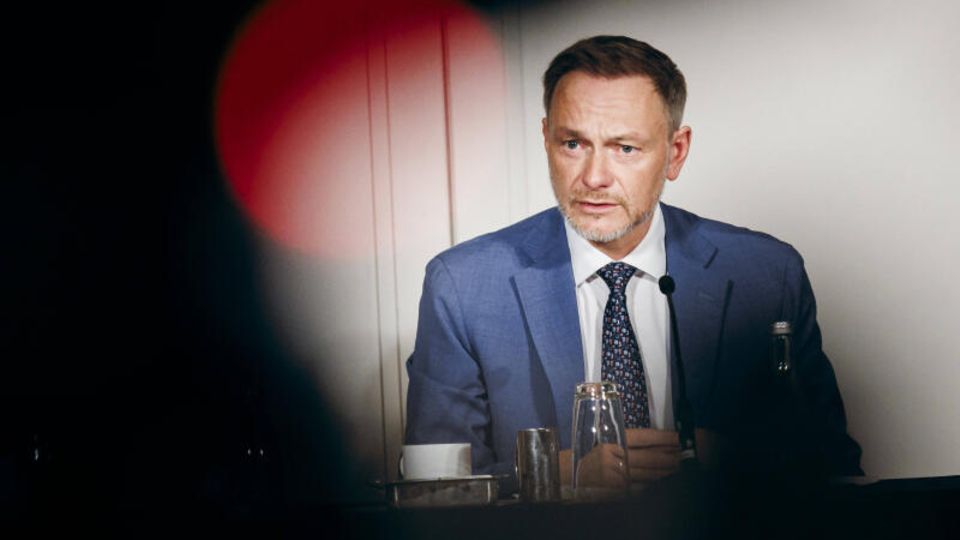analysis
According to FDP demands
Why are the Greens suddenly so quiet?
Party leaders Lang and Nouripour: The Greens exercise restraint in communication.
© dts news agency / Imago Images
Well? While the SPD strongly condemns the Liberals’ latest demands, leading Greens appease them – or say nothing at all. There could be a bigger plan here.
The Social Democrats are angry. The reason: the latest proposals from the FDP for an “economic turnaround”. A week before the Liberal party conference, these were announced, including: tightening citizens’ benefits, abolishing pensions at 63 and the solidarity surcharge, suspending the supply chain law and a moratorium on social benefits.
For leading SPD representatives (general secretary, parliamentary group leader, federal labor minister) this is either: “insulting employees”, a “cynical look at our fellow human beings”, “unsuitable”, “leftovers from a mothball” or “nonsense”. Party leader Lars Klingbeil said: If the FDP believes that the economy is doing better “if craftsmen, nurses or educators are doing worse, then they are very wrong.”
Because the Social Democrats are foaming at the mouth, it is striking how quiet the third party in the traffic light group is. Only one Green MP complains about the FDP ideas, the specialist politician Beate Müller-Gemmeke. “This FDP no longer has any compass at all,” she said star. Otherwise? Radio silence. The Green Party leadership did not want to make a statement to the dpa news agency on Sunday. On Monday, party leader Omid Nouripour appeared in front of the cameras after the Federal Executive Board meeting and spoke about Russia’s war in Ukraine, suspected Chinese spies, the European “Green Deal” and the new solar package. But not about liberal crossroads, which the opposition Union already suspects is a traffic light “divorce document”. How can that be?
Green reluctance: There are two reasons
First of all, Nouripour’s answer: The party leader didn’t just get away with it on Monday – after his statement, journalists asked him specifically about the FDP’s demands. “The fact that we have different views, that different decisions are made at party conferences of different parties, is everything,” said the party leader, “just not particularly new.” On Tuesday, co-party leader Katharina Dröge reassured similar questions in a similar manner: “Each of us has party conferences.” So the tenor: purely a matter for the FDP, to appease its own base. Everything is not so wild for the traffic lights – and the Greens.
But another reason for the reluctance could also be a new strategy. Because the case of the FDP paper should show in practice what the Greens have firmly decided to do – to bring disputes less into the public eye. Or at least to be less responsible for it yourself. Of course, you don’t have to be under any illusions: the “traffic lights are arguing about” headlines will probably no longer be able to be avoided in this legislative period.
But you can try, even if it doesn’t always work. Using the most recent example, the Greens at least hinted at this course: parliamentary group leader Dröge said that there were already “enough discussion processes” in the coalition. Party leader Nouripour pointed out that there had already been a lot of talk about “disagreements” that were “sometimes too shrill and too loud”.
Traffic light representatives repeatedly cite the public disputes as the reason for the poor approval ratings. At the beginning of the year, Olaf Scholz, the Chancellor, called for fewer arguments in public: “Unfortunately, it has only rarely been possible to make important decisions without lengthy public disputes. We have to take credit for that,” he told the ” Time”.
The traffic light problem is not purely communicative
However, even the latest green backlight cannot hide the fact that the traffic light problem is not purely a communicative one. Deep rifts are opening up between the partners – which can no longer be easily filled with money since the Federal Constitutional Court’s budget ruling in November.
And so the Greens are right that it is no coincidence that the FDP presidium has decided on exactly such a paper right now. The “pure FDP” demands are intended to appease the angry base to some extent. And it is certainly true that not all such party congress demands are implemented one-to-one – this is no different for the other parties.
But what if the Greens’ reluctance actually encourages the Liberals to follow through? What if remaining silent weakens your own negotiating position? The FDP is serious about the concept of “economic turnaround” – after all, the party, which only has five percent in the most recent surveys, has identified it as a life preserver. The calculation: The economy has to be stimulated so that we ourselves can get better again.
That’s why, contrary to what the Greens portray, the FDP catalog is not just party conference bluster. It will be important for the FDP to actually accommodate at least some of the points. The three traffic light partners are already negotiating a concept to strengthen the economy. And then there are the budget negotiations for 2025 – the deep conflicts that are breaking out would probably not be able to be concealed even with strict public restraint.





